
Zadar: A Blend of Ancient Charm and Modern Wonders
Zadar is a city that perfectly balances the old and the new, making it a unique tourist destination on Croatia's Dalmatian coast. Known for its historical ruins, medieval architecture, and vibrant cultural life, Zadar offers visitors a rich tapestry of experiences. The city's Roman and Venetian influences are evident in its ancient churches, fortifications, and public squares, while its modern attractions, like the Sea Organ and the Sun Salutation, provide a contemporary twist. Stroll through the Old Town and you'll find yourself stepping back in time. Marvel at the Roman Forum, visit the 9th-century Church of St. Donatus, and explore the city's impressive fortifications. The cobblestone streets and charming cafes make it easy to lose yourself in the city's historic atmosphere. Yet, Zadar is not just about the past. The Sea Organ, a unique architectural sound art object, uses the movement of the sea to create music, and the nearby Sun Salutation is a light installation that captures solar energy to create a mesmerizing light show at night. Zadar's coastal location means stunning sea views and beautiful beaches are always within reach. The crystal-clear waters of the Adriatic make it a great spot for swimming, sailing, and other water activities. For those looking to venture beyond the city, the nearby Kornati Islands and Paklenica National Park offer incredible natural beauty and outdoor adventures. With its mix of history, culture, and natural beauty, Zadar is a captivating destination for any traveler.
Local tips in Zadar
- Visit the Sea Organ and Sun Salutation at sunset for an unforgettable experience.
- Wear comfortable shoes as the Old Town's cobblestone streets can be tricky to navigate.
- Take a boat trip to the Kornati Islands for breathtaking scenery and clear waters.
- Try local specialties like Pag cheese and Maraschino liqueur at the local markets and restaurants.
- Check the schedule for cultural events and festivals, especially during the summer months.
Zadar: A Blend of Ancient Charm and Modern Wonders
Zadar is a city that perfectly balances the old and the new, making it a unique tourist destination on Croatia's Dalmatian coast. Known for its historical ruins, medieval architecture, and vibrant cultural life, Zadar offers visitors a rich tapestry of experiences. The city's Roman and Venetian influences are evident in its ancient churches, fortifications, and public squares, while its modern attractions, like the Sea Organ and the Sun Salutation, provide a contemporary twist. Stroll through the Old Town and you'll find yourself stepping back in time. Marvel at the Roman Forum, visit the 9th-century Church of St. Donatus, and explore the city's impressive fortifications. The cobblestone streets and charming cafes make it easy to lose yourself in the city's historic atmosphere. Yet, Zadar is not just about the past. The Sea Organ, a unique architectural sound art object, uses the movement of the sea to create music, and the nearby Sun Salutation is a light installation that captures solar energy to create a mesmerizing light show at night. Zadar's coastal location means stunning sea views and beautiful beaches are always within reach. The crystal-clear waters of the Adriatic make it a great spot for swimming, sailing, and other water activities. For those looking to venture beyond the city, the nearby Kornati Islands and Paklenica National Park offer incredible natural beauty and outdoor adventures. With its mix of history, culture, and natural beauty, Zadar is a captivating destination for any traveler.
When is the best time to go to Zadar?
Iconic landmarks you can’t miss
Sea Organ
Experience the enchanting melodies of the Adriatic Sea at Zadar's Sea Organ, a unique architectural marvel where nature composes a symphony.
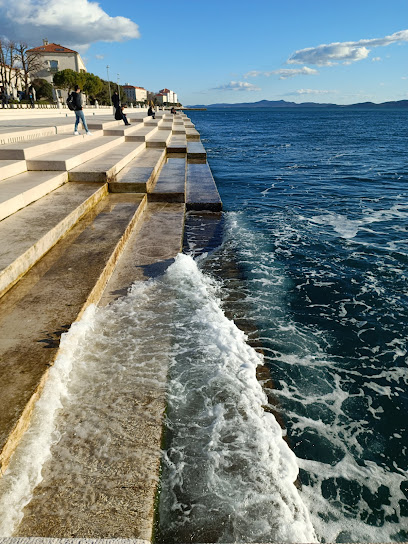
Church of St. Donatus
Discover the Church of St. Donatus in Zadar, a stunning 9th-century Romanesque masterpiece and a key historical landmark in Croatia.
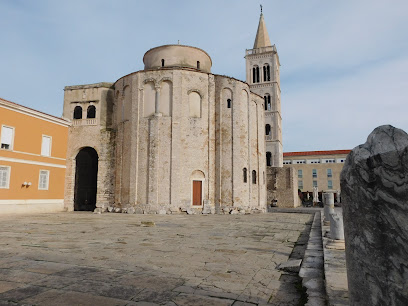
Market Zadar
Discover the lively Market Zadar, where local produce, artisanal goods, and vibrant atmosphere come together in the heart of Croatia's beautiful coastal city.
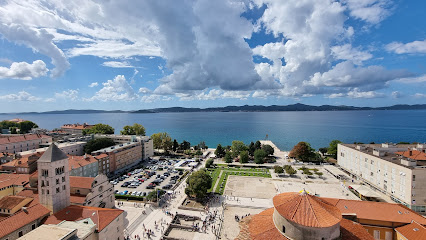
Kolovare Beach
Experience the breathtaking beauty and vibrant atmosphere of Kolovare Beach in Zadar, Croatia's stunning coastal paradise.
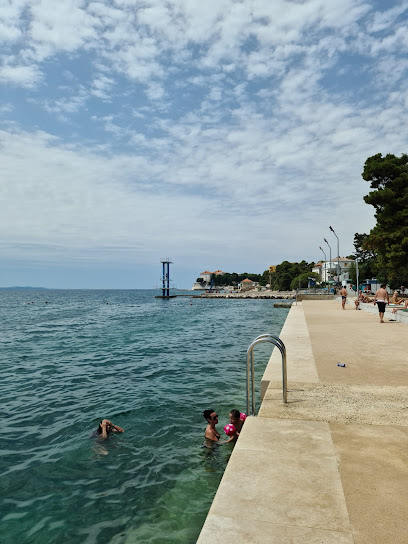
Roman Forum
Explore Croatia's largest Roman forum in Zadar, where ancient ruins whisper tales of emperors, merchants, and citizens.
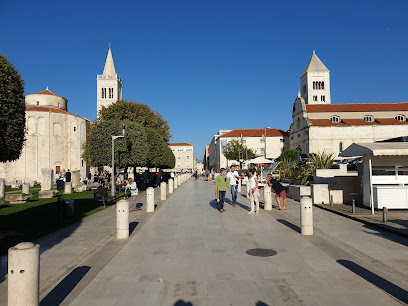
The Greeting to the Sun
Discover the enchanting Greeting to the Sun in Zadar – a stunning solar installation that lights up the night sky and celebrates the beauty of nature.
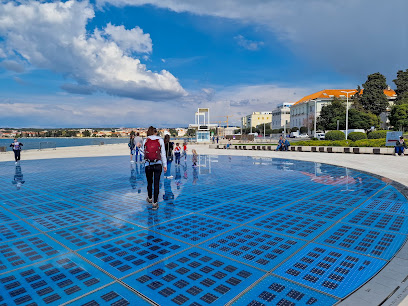
Queen Jelena Madijevka Park
Escape to Zadar's oldest park: a serene oasis of nature, history, and stunning views in the heart of the city's Old Town.
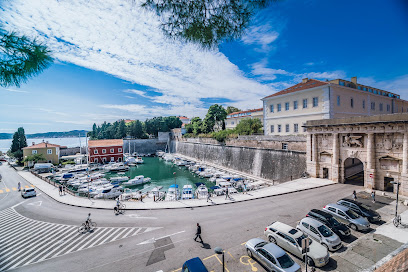
Famous Beach Bar & Grill
Experience the perfect blend of seaside dining and vibrant atmosphere at Famous Beach Bar & Grill in Zadar, Croatia.
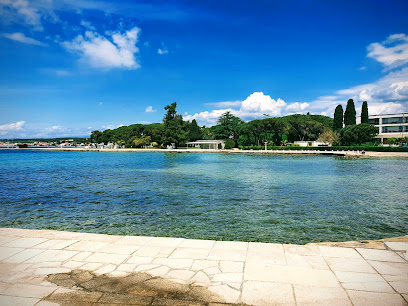
Cathedral of St. Anastasia
Explore Zadar's magnificent Cathedral of St. Anastasia, a Romanesque masterpiece with a rich history and stunning panoramic views.
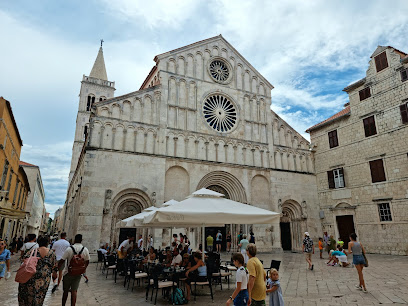
The Five Wells Square
Discover Zadar's historic heart at Five Wells Square, a 16th-century marvel offering history, culture, and vibrant city life amidst ancient walls and lush parks.
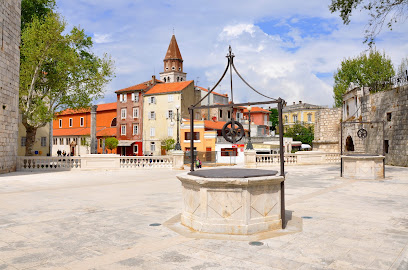
Muzej Iluzija Zadar
Discover mind-bending illusions and interactive exhibits at Muzej Iluzija Zadar, an unforgettable attraction in the heart of Croatia's beautiful coastal city.
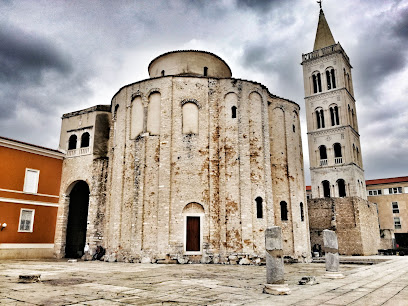
Marina Tankerkomerc
Explore the Adriatic from Zadar's premier marina: Your gateway to Croatia's stunning coast and islands.
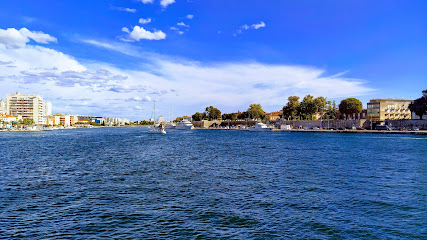
Archaeological Museum Zadar
Delve into the past at the Archaeological Museum of Zadar, where history comes alive through captivating artifacts and exhibitions.
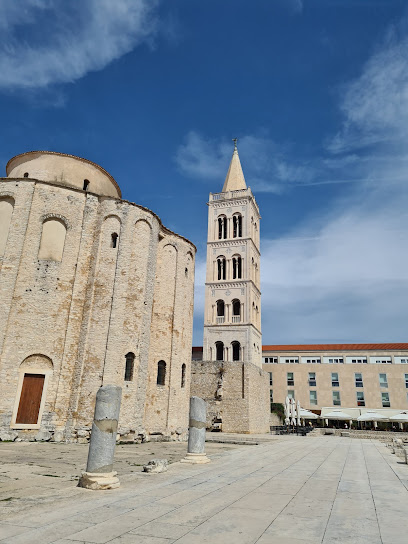
Arsenal Zadar MS
Experience Zadar's vibrant culture at Arsenal, a historic Venetian venue hosting concerts, exhibitions, weddings, and more near the waterfront.
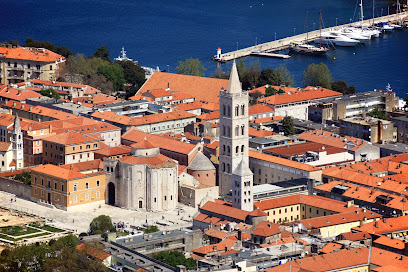
Gradski most
Explore the iconic Gradski Most in Zadar, a stunning bridge connecting the old town with exceptional views and vibrant local culture.
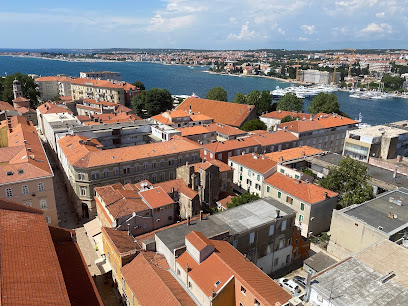
Unmissable attractions to see
Sea Organ
Experience Zadar's Sea Organ, where the Adriatic waves create mesmerizing melodies in a stunning coastal setting, blending art and nature beautifully.
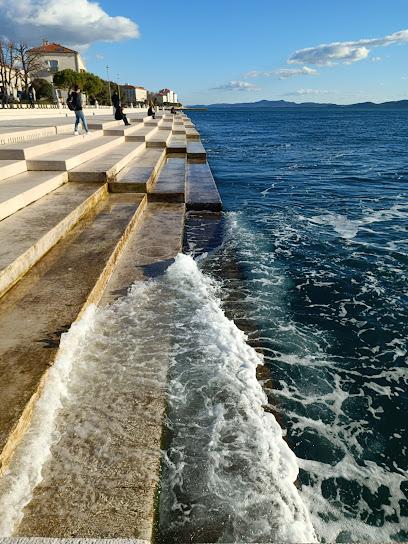
Saint Donatus’ Church
Explore the timeless beauty of Saint Donatus’ Church in Zadar, a stunning architectural gem and a symbol of Croatia's rich history.
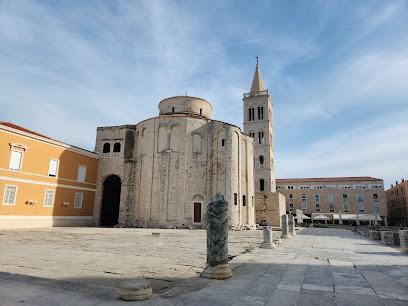
Telašćica Nature Park
Explore the breathtaking cliffs, tranquil bays, and diverse wildlife of Telašćica Nature Park, a hidden gem in Croatia's Dalmatian coast.
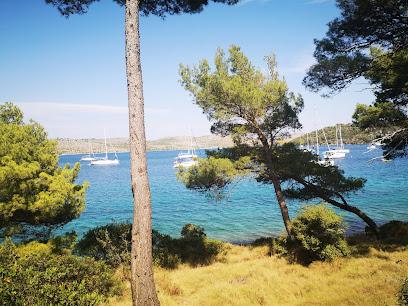
Market Zadar
Explore the authentic flavors and vibrant atmosphere of Market Zadar, a must-visit destination for every traveler in Croatia's historical city.
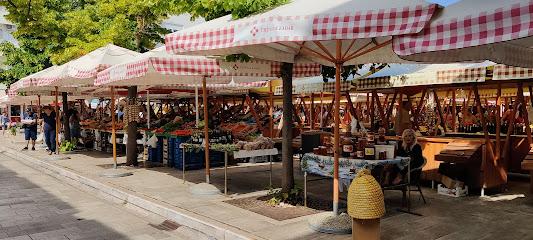
Kolovare Beach
Explore the stunning Kolovare Beach in Zadar, a perfect blend of relaxation, adventure, and breathtaking Adriatic views.
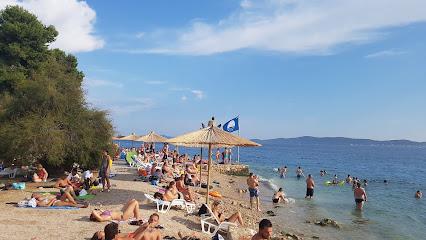
Paklenica National Park
Explore the breathtaking landscapes and diverse wildlife of Paklenica National Park, a premier destination for outdoor adventures in Croatia.
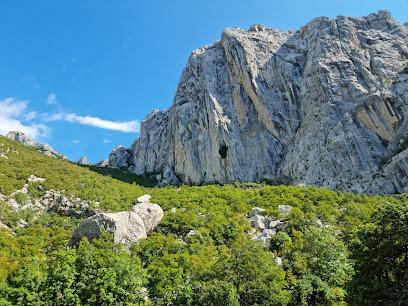
Roman Forum
Explore the ancient Roman Forum in Zadar, a captivating historical site where history, culture, and stunning architecture come together.
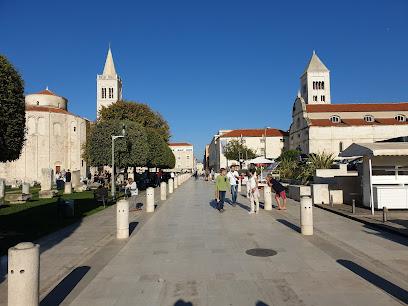
Beach Sakarun
Discover the stunning beauty of Sakarun Beach on Dugi Otok, where soft sands and crystal-clear waters create a perfect paradise for relaxation and adventure.
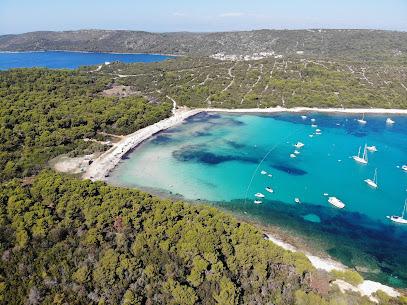
Nikola Tesla Memorial Centre
Discover the extraordinary life of Nikola Tesla at the Memorial Centre in Smiljan, Croatia, showcasing his inventions and the impact on modern technology.
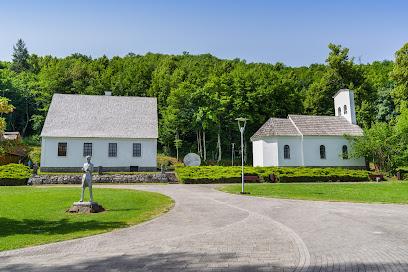
The Greeting to the Sun
Experience the enchanting Greeting to the Sun in Zadar, where art meets nature in a breathtaking display of solar-powered light and beauty.
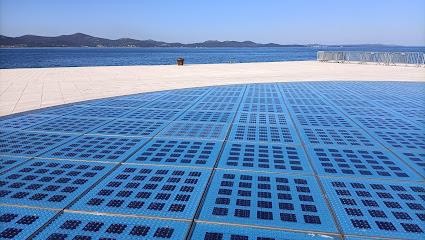
Maslenica bridge
Experience the breathtaking views and thrilling adventure of the Maslenica Bridge, the highest bungee jumping spot in Croatia, in Jasenice.
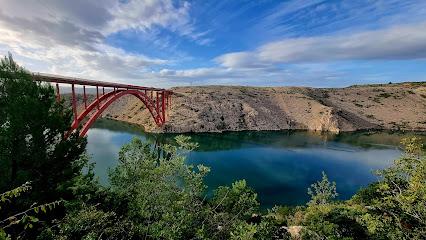
National Park Kornati
Explore the pristine Kornati National Park, an archipelago paradise in Croatia known for its stunning landscapes, rich biodiversity, and tranquil seclusion.
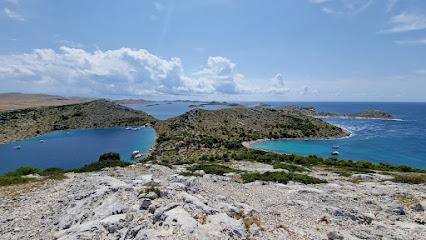
Solana Nin Salt Museum
Explore the Solana Nin Salt Museum, a captivating journey through the history and artistry of salt production in Croatia's picturesque Nin.

The Five Wells Square
Explore the historic Five Wells Square in Zadar, a captivating landmark showcasing the city's rich heritage and serene ambiance.
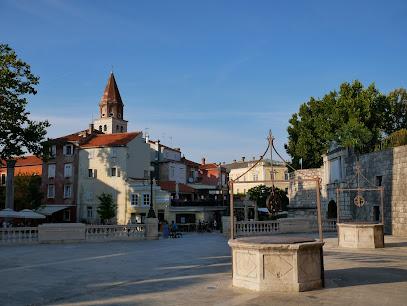
Cathedral of St. Anastasia
Explore the Cathedral of St. Anastasia, a stunning blend of Romanesque architecture and rich history in the heart of Zadar, Croatia.
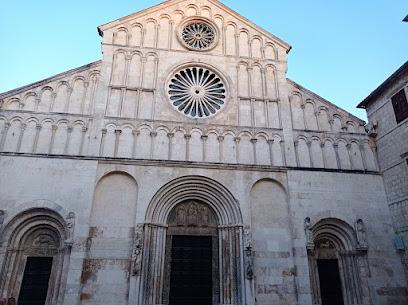
Essential places to dine
Restoran Bruschetta
Discover culinary delights at Restoran Bruschetta in Zadar – where Mediterranean flavors meet exceptional service in a charming atmosphere.
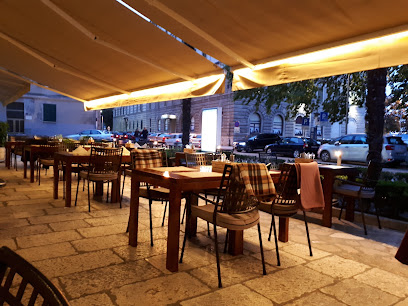
Restoran 4 Kantuna
Discover the best of Croatian cuisine at Restoran 4 Kantuna in Zadar—where tradition meets innovation in every delicious bite.
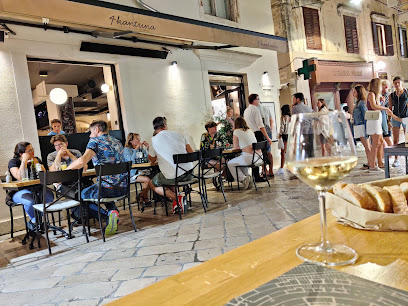
Butler Gourmet&Cocktails Garden
Experience exquisite Mediterranean cuisine and vibrant cocktails at Butler Gourmet & Cocktails Garden in scenic Zadar.
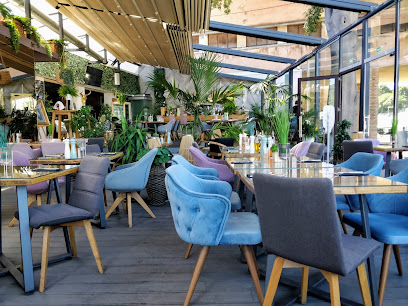
The Botanist
Experience exquisite plant-based dining at The Botanist in Zadar—where innovation meets nature's finest ingredients.
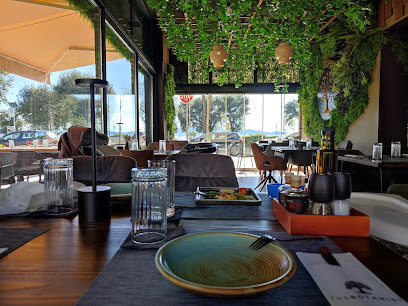
Konoba Rafaelo
Discover authentic Croatian flavors at Konoba Rafaelo in Zadar – where tradition meets taste in every delightful dish.
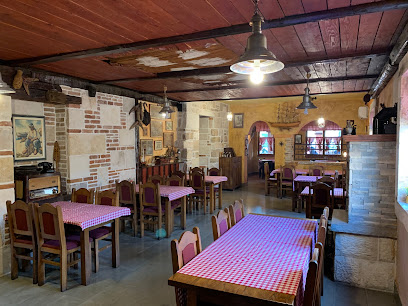
La Famiglia
Experience authentic Italian cuisine at La Famiglia in Zadar - where every dish tells a story of tradition and flavor.
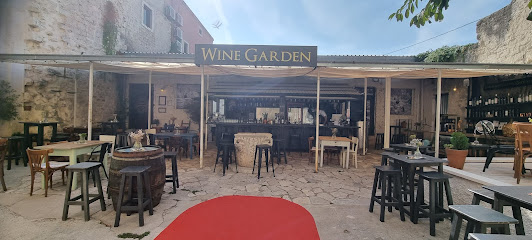
PET BUNARA Dine & Wine
Discover the culinary delights at PET BUNARA Dine & Wine in Zadar – where local flavors meet stunning scenery.
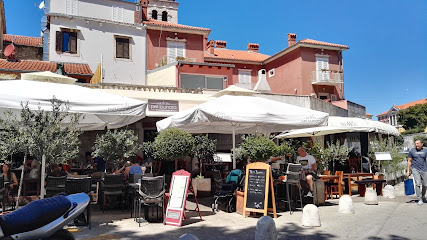
Restaurant Malo Misto
Experience authentic Croatian cuisine at Restaurant Malo Misto—where traditional flavors meet modern dining in Zadar.
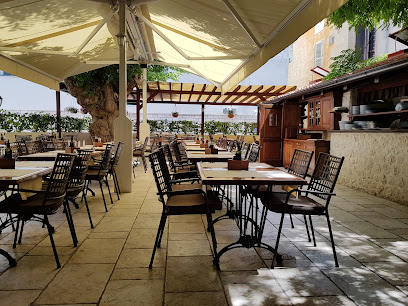
Kornat Restaurant
Experience authentic Mediterranean cuisine at Kornat Restaurant in Zadar - where fresh ingredients meet stunning waterfront views.
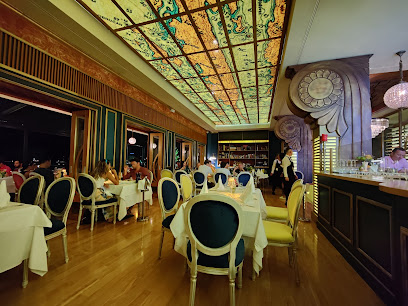
Groppo
Discover Groppo in Zadar: where authentic Croatian flavors meet modern culinary artistry for an unforgettable dining experience.
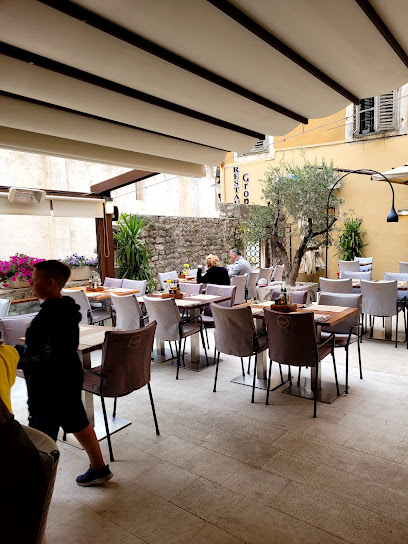
Salsa Rossa Italian Restaurant
Experience authentic Italian dining at Salsa Rossa in Zadar - where every meal tells a story.
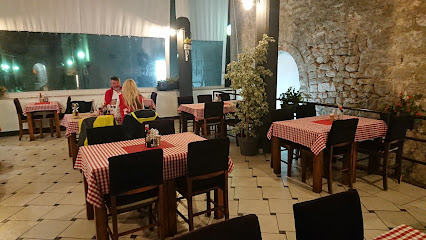
Restaurant Tinel
Experience authentic Mediterranean cuisine at Restaurant Tinel in Zadar - where local ingredients meet exquisite flavors.
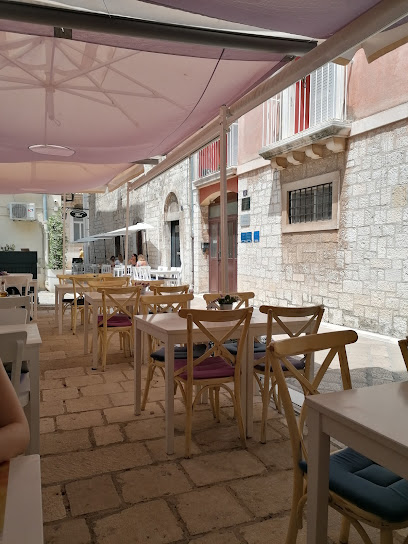
Ristorante Al Pacchero
Discover authentic Italian cuisine at Ristorante Al Pacchero in Zadar - where every dish tells a delicious story.
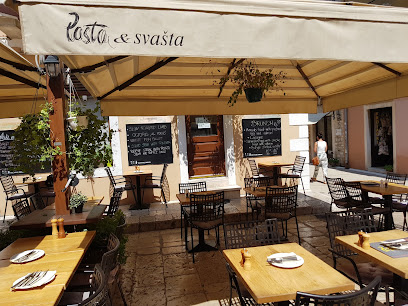
Providur restaurant & wine bar
Savor exquisite dishes and fine wines at Providur Restaurant & Wine Bar in Zadar - A true culinary experience awaits you.
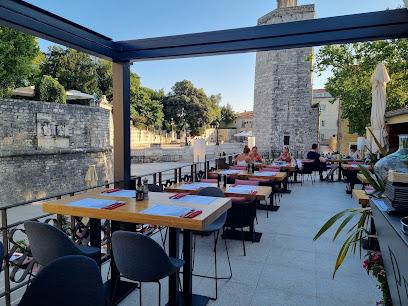
Kapric restaurant & bar
Discover exquisite dining at Kapric Restaurant & Bar in Zadar, blending local flavors with modern cuisine for an unforgettable experience.
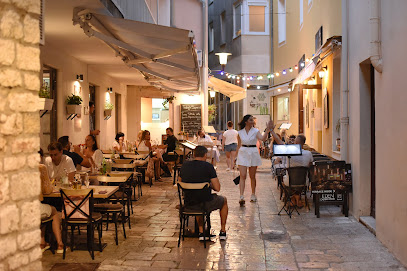
Markets, malls and hidden boutiques
Supernova Zadar
Discover Supernova Zadar: Croatia's ultimate shopping destination featuring diverse stores, dining options, and a vibrant atmosphere for all ages.
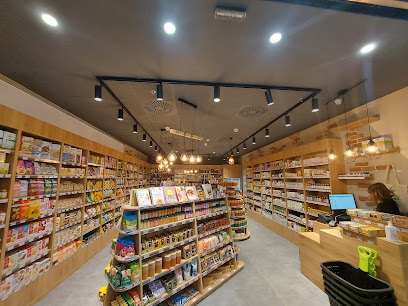
City Galleria
Experience shopping and leisure at City Galleria, Zadar's premier mall with diverse shops, cafes, and family-friendly entertainment.
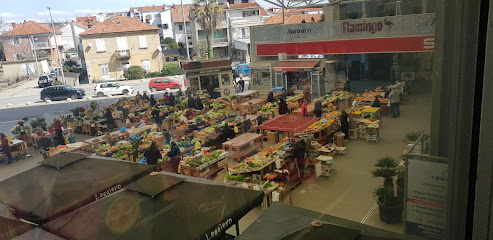
Hey Park Zadar
Explore the heart of retail therapy and local flavors at Hey Park Zadar, a must-visit shopping destination in Croatia's scenic coastal city.
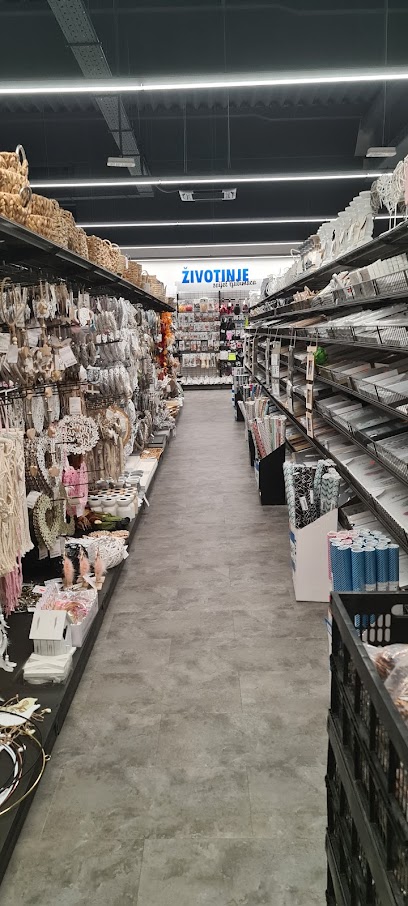
Zadar Shopping Capitol
Discover Zadar Shopping Capitol, where diverse shopping experiences meet delightful dining in the heart of Croatia's historic city.
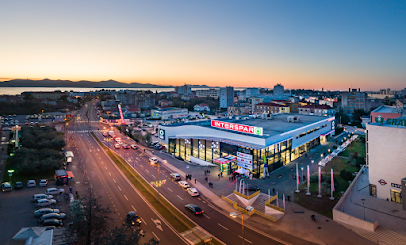
City Park - Zadar
Explore City Park in Zadar - a vibrant shopping destination blending retail, dining, and culture in the heart of Croatia's historical city.
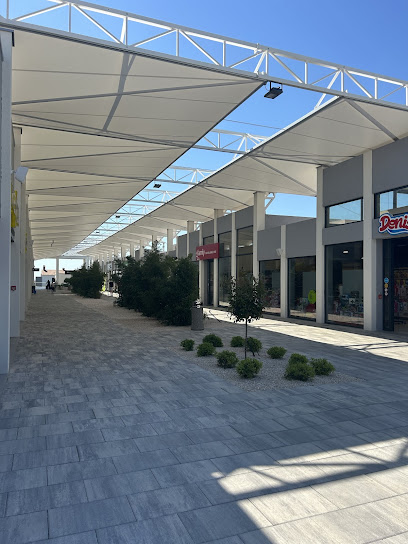
Studio Limun Croatian design store
Explore Studio Limun for unique souvenirs and local art, embodying the spirit of Zadar's rich culture and craftsmanship.
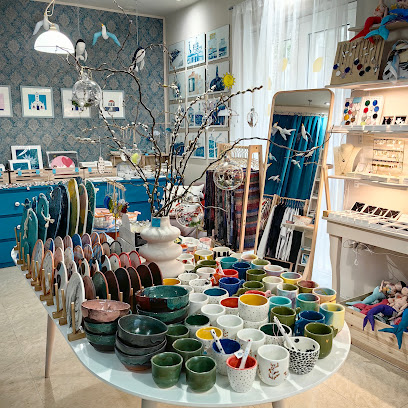
Desigual
Experience vibrant fashion at Desigual in Zadar, where unique styles and creativity come together for both men and women.
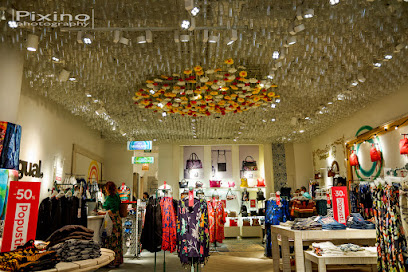
Antik & vinyl shop
Explore Zadar's Antik & Vinyl Shop, a quaint haven of vintage books and records, perfect for collectors and casual visitors alike.
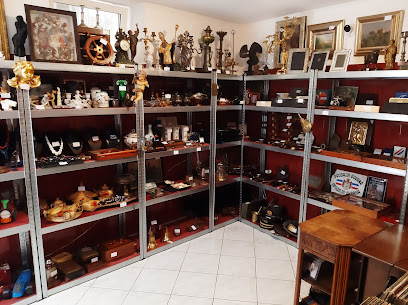
Garica CBD Shop Zadar
Discover Garica CBD Shop in Zadar, where quality meets expertise in a welcoming environment for all cannabis enthusiasts.
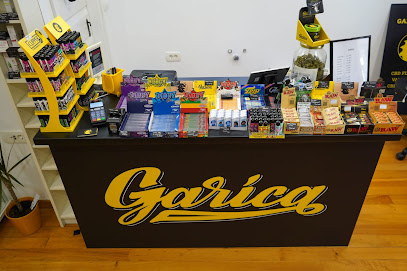
HNK Hajduk Split - Fan shop Zadar
Explore the essence of Croatian football at the HNK Hajduk Split Fan Shop in Zadar, where passion meets merchandise.
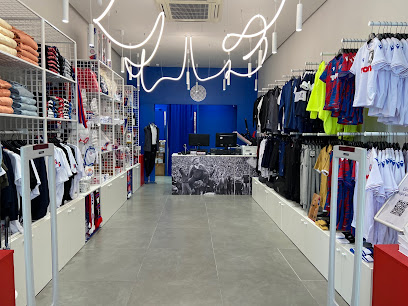
Cigar Shop Cuba Libre
Discover the finest selection of premium cigars at Cigar Shop Cuba Libre in Zadar, where quality meets tradition in a cozy atmosphere.
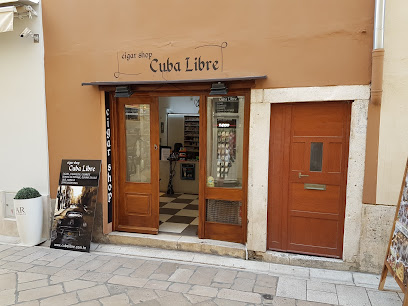
Vishalica
Discover unique clothing and accessories at Vishalica, Zadar's charming convenience store offering a taste of local shopping culture.
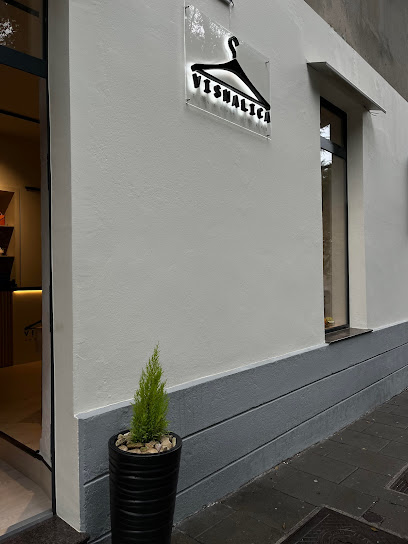
adidas Store Zadar, Galleria
Explore the Adidas Store in Zadar for the latest in sportswear, footwear, and stylish athletic gear for the whole family.

Boutique Step By Step
Discover unique fashion treasures at Boutique Step By Step in Zadar – where local style meets contemporary elegance.
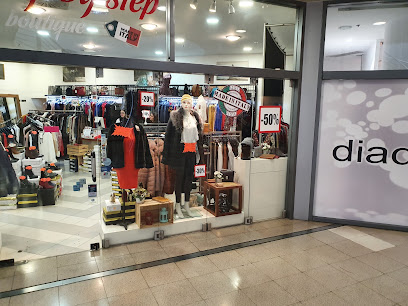
Boutique Trendy Rinascimento
Discover unique fashion at Boutique Trendy Rinascimento in Zadar, where style meets local charm and contemporary elegance.
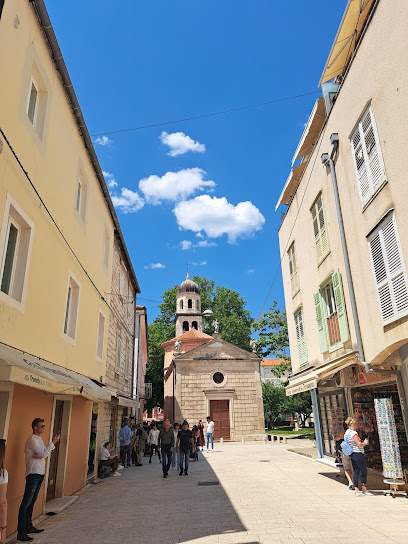
Essential bars & hidden hideouts
Beach Bar Bamboo
Discover the vibrant Beach Bar Bamboo in Zadar, where stunning sea views meet delicious cocktails and a lively atmosphere.
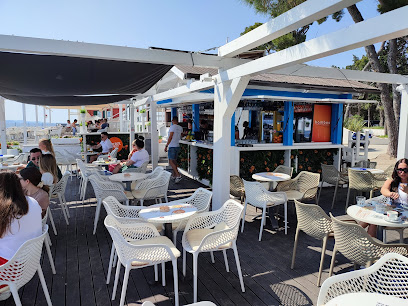
Yachting Bar & Club
Discover the vibrant ambiance of Yachting Bar & Club in Zadar, where stunning sea views and delicious cocktails await you.
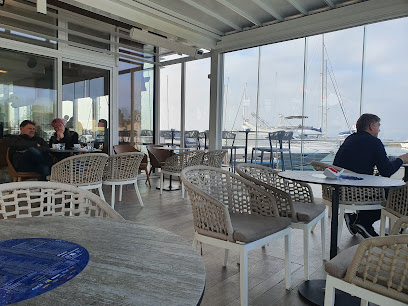
Deja Brew Pub Zadar
Experience Zadar's vibrant nightlife at Deja Brew Pub, where craft beers and a lively atmosphere await every visitor.
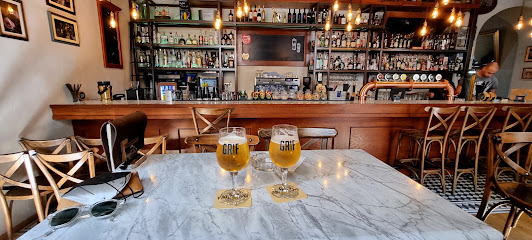
Caffe Bar Kult
Experience the vibrant nightlife of Zadar at Caffe Bar Kult, your go-to bar for great drinks and a lively atmosphere.
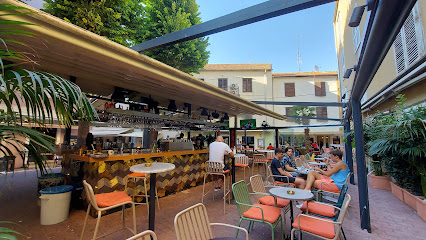
Sphinx
Discover Sphinx Bar & Restaurant in Zadar – where vibrant atmosphere meets delightful culinary experiences amidst stunning Adriatic views.
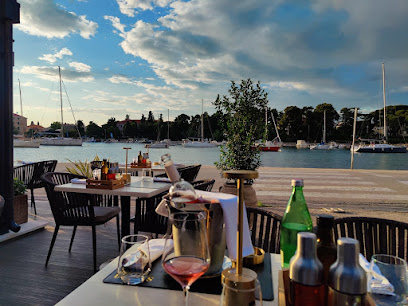
Svarog Bar
Discover Zadar's nightlife at Svarog Bar, where vibrant vibes and exquisite drinks create the perfect atmosphere for a memorable evening.
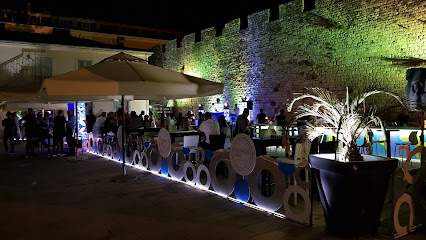
BackStage Bar Pub Zadar
Discover the lively ambiance and diverse menu at BackStage Bar Pub Zadar, a top spot for drinks and great food in the heart of the city.
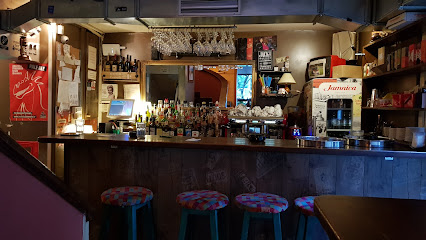
Teatro Bar
Discover the lively Teatro Bar in Zadar, where innovative cocktails meet vibrant atmosphere for an unforgettable night out.
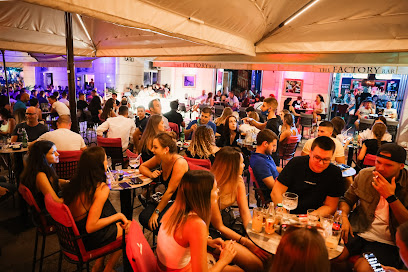
Wine bar Dišpet
Experience the essence of Zadar at Wine Bar Dišpet, where local wines and a cozy atmosphere create unforgettable moments.
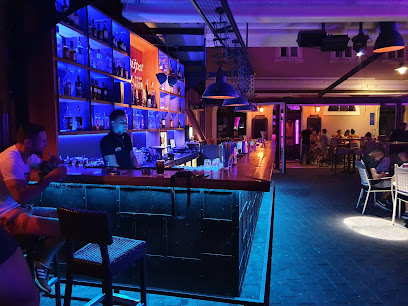
Down Town
Experience the lively ambiance of Down Town Zadar, a bar and café with delicious drinks, light bites, and complimentary Wi-Fi in the heart of the city.
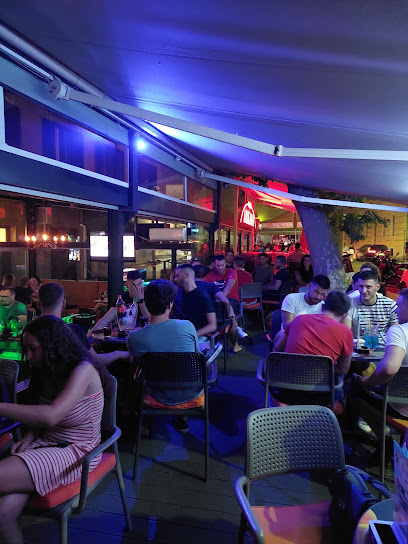
Frenky Bar
Experience the vibrant nightlife of Zadar at Frenky Bar, where cocktails and camaraderie blend in an unforgettable atmosphere.
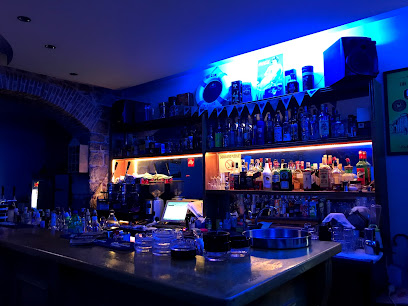
The Factory Bar
Experience the lively atmosphere and diverse drink menu at The Factory Bar, a must-visit spot for tourists in Zadar.
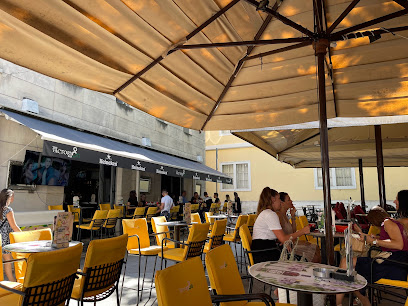
Toni
Discover the vibrant atmosphere of Toni, a must-visit bar in Zadar, offering delightful drinks and a social setting for every traveler.
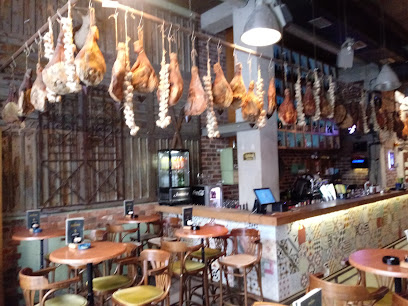
MYSTIQUE bar & more
Experience the vibrant nightlife at MYSTIQUE Bar & More, the perfect blend of ambiance, exquisite drinks, and friendly service in Zadar.
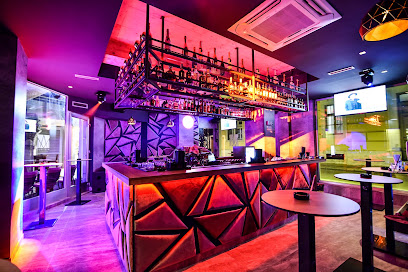
RIO bar
Discover the lively spirit of Zadar at RIO Bar, where exceptional cocktails and a vibrant atmosphere await you.
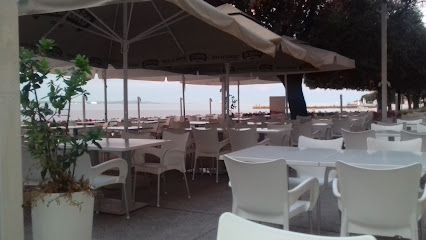
Travel experiences inspired by this city
Explore more travel diariesLocal Phrases
-
- HelloBok
[Bohk] - GoodbyeDoviđenja
[Doh-vee-jen-ya] - YesDa
[Da] - NoNe
[Neh] - Please/You're welcomeMolim
[Moh-leem] - Thank youHvala
[Hvah-lah] - Excuse me/SorryOprostite
[Oh-proh-stee-teh] - How are you?Kako si?
[Kah-koh see?] - Fine. And you?Dobro. A ti?
[Doh-broh. Ah tee?] - Do you speak English?Govorite li engleski?
[Goh-voh-ree-teh lee ehn-gleh-skee?] - I don't understandNe razumijem
[Neh rah-zoo-mee-yem]
- HelloBok
-
- I'd like to see the menu, pleaseMogu li vidjeti jelovnik, molim?
[Moh-goo lee vee-dyeh-tee yeh-lohv-neek, moh-leem?] - I don't eat meatNe jedem meso
[Neh yeh-dem meh-so] - Cheers!Živjeli!
[Zhee-vee-lee] - I would like to pay, pleaseŽelim platiti, molim
[Zheh-leem plah-tee-tee, moh-leem]
- I'd like to see the menu, pleaseMogu li vidjeti jelovnik, molim?
-
- Help!Pomoć!
[Poh-mohtch!] - Go away!Idi odavde!
[Ee-dee oh-dahv-deh!] - Call the Police!Pozovite policiju!
[Poh-zoh-vee-teh poh-lee-tsee-yoo!] - Call a doctor!Pozovite doktora!
[Poh-zoh-vee-teh dohk-toh-rah!] - I'm lostIzgubljen sam
[Eez-goob-lyen sahm] - I'm illBolestan sam
[Boh-leh-stahn sahm]
- Help!Pomoć!
-
- I'd like to buy...Želim kupiti...
[Zheh-leem koo-pee-tee...] - I'm just lookingSamo gledam
[Sah-moh gleh-dahm] - How much is it?Koliko košta?
[Koh-lee-koh koh-shta?] - That's too expensiveTo je pre skupo
[Toh yeh preh skoo-poh] - Can you lower the price?Možete li spustiti cijenu?
[Moh-zheh-teh lee spoo-stee-tee tsee-yeh-noo?]
- I'd like to buy...Želim kupiti...
-
- What time is it?Koliko je sati?
[Koh-lee-koh yeh sah-tee?] - It's one o'clockJedan je sat
[Yeh-dahn yeh saht] - Half past (10)Pola (deset)
[Poh-lah (deh-seht)] - MorningJutro
[Yoo-troh] - AfternoonPopodne
[Poh-pohd-neh] - EveningVečer
[Veh-chehr] - YesterdayJučer
[Yoo-chehr] - TodayDanas
[Dah-nahs] - TomorrowSutra
[Soo-trah] - 1Jedan
[Yeh-dahn] - 2Dva
[Dvah] - 3Tri
[Tree] - 4Četiri
[Cheh-tee-ree] - 5Pet
[Peh-t] - 6Šest
[Shehst] - 7Sedam
[Seh-dahm] - 8Osam
[Oh-sahm] - 9Devet
[Deh-veht] - 10Deset
[Deh-seht]
- What time is it?Koliko je sati?
-
- Where's a/the...?Gdje je...
[Gdyeh yeh...] - What's the address?Koja je adresa?
[Koh-yah yeh ah-dre-sah?] - Can you show me (on the map)?Možete li mi pokazati (na karti)?
[Moh-zheh-teh lee mee poh-kah-zah-tee (nah kahr-tee)?] - When's the next (bus)?Kad je sljedeći (autobus)?
[Kahd yeh slyeh-dey-chee (ow-toh-boos)?] - A ticket (to ....)Jednu kartu (za ...)
[Yeh-dnoo kahr-too (zah ...)]
- Where's a/the...?Gdje je...
History of Zadar
-
Zadar, originally known as Iader, has been inhabited since the Neolithic period. The city's strategic position along the Adriatic Sea made it a valuable hub for trade and culture. In 59 BC, the Romans established a colony here, and it thrived under their rule. Zadar's Roman influence is still visible in the remnants of the Roman Forum, the largest on the eastern side of the Adriatic.
-
After the fall of the Roman Empire, Zadar came under Byzantine rule. The city's significance grew, becoming the administrative center of Byzantine Dalmatia. In 1202, during the Fourth Crusade, Zadar was attacked and sacked by the Crusaders and Venetians, leading to Venetian control. The Venetian era left a lasting architectural and cultural impact on the city, seen in its fortifications and numerous churches.
-
During the medieval period, Zadar became a prominent center of art, culture, and education. The construction of the University of Zadar in 1396 marked one of the earliest universities in Europe. The Renaissance period saw the flourishing of arts and literature, with notable figures such as Petar Zoranić, author of the first Croatian novel, 'Planine,' contributing to the city's cultural heritage.
-
The 16th and 17th centuries were marked by continuous threats from the Ottoman Empire. Despite frequent attacks, Zadar remained a resilient stronghold. In 1797, following the Treaty of Campo Formio, Zadar came under Habsburg rule, integrating into the Austrian Empire. This period saw modernization efforts and the expansion of the city's infrastructure.
-
Zadar experienced significant turmoil during World War II, suffering extensive damage from Allied bombing. After the war, Zadar became part of the Socialist Federal Republic of Yugoslavia. The post-war era saw rebuilding efforts and the city’s transformation into a modern urban center.
-
With the dissolution of Yugoslavia in the early 1990s, Zadar became part of an independent Croatia. The city has since emerged as a vibrant tourist destination, known for its rich history, beautiful coastline, and unique attractions like the Sea Organ and Sun Salutation. Today, Zadar seamlessly blends its historic past with contemporary culture, making it a must-visit location on the Adriatic coast.
Zadar Essentials
-
Zadar is accessible via Zadar Airport (ZAD), located about 12 kilometers from the city center. The airport serves domestic and international flights, making it convenient for travelers from various locations. You can reach Zadar city center from the airport by taking a taxi, airport shuttle bus, or renting a car. Alternatively, you can arrive in Zadar by bus, with regular services from major Croatian cities and neighboring countries. The city is also accessible by train, although the rail network is less extensive. For those traveling by sea, Zadar has a ferry port with connections to various Adriatic islands and Italian cities like Ancona.
-
Zadar's public transportation system includes buses operated by Liburnija Zadar, which cover the city and its suburbs. Tickets can be purchased at kiosks or directly from the driver. Taxis are readily available and can be hailed on the street or booked via phone or mobile apps. For a more flexible option, consider renting a car or using a bike-sharing service. Zadar's old town is pedestrian-friendly, and many attractions are within walking distance.
-
The official currency in Croatia is the Croatian Kuna (HRK). Credit and debit cards are widely accepted in hotels, restaurants, and shops. It is advisable to carry some cash, especially when visiting markets, smaller shops, or rural areas. ATMs are plentiful throughout Zadar, and currency exchange services are available at banks, exchange offices, and some hotels.
-
Zadar is generally a safe destination for tourists. However, like any city, it is important to stay vigilant. Avoid poorly lit areas at night and be cautious with your belongings in crowded places. There are no specific high-crime areas targeting tourists, but pickpocketing can occur, particularly in busy tourist spots. Always keep your valuables secure and be aware of your surroundings.
-
In case of an emergency, dial 112 for immediate assistance. This number connects you to emergency services, including police, fire, and medical assistance. Zadar has several medical facilities, including the General Hospital Zadar, which offers emergency services. Pharmacies are also available for minor health issues. It is recommended to have travel insurance that covers medical emergencies.
-
Fashion: Do dress comfortably and modestly, especially when visiting religious sites. Avoid overly revealing clothing. Religion: Do respect local customs and traditions. When entering churches, cover your shoulders and knees. Public Transport: Do validate your bus ticket upon boarding. Don’t eat or drink on public transport. Greetings: Do greet people with a friendly 'Dobar dan' (Good day) or a simple handshake. Eating & Drinking: Do try local dishes and wines. Don’t leave a small tip at restaurants; tipping 10% is customary.
-
To experience Zadar like a local, visit the city's vibrant markets, such as the Trznica Zadar, where you can buy fresh produce, seafood, and local delicacies. Take a stroll along the Riva promenade, especially at sunset, to enjoy stunning views of the Adriatic Sea. Engage with locals, who are usually friendly and eager to share their city's history and culture. Don’t miss the Sea Organ and the Greeting to the Sun installations, which are unique attractions that blend art and nature.
Trending Landmark in Zadar
Nearby Cities to Zadar
-
Things To Do in Bihac
-
Things To Do in Trogir
-
Things To Do in Split
-
Things To Do in Pula
-
Things To Do in Opatija
-
Things To Do in Hvar
-
Things To Do in Jajce
-
Things To Do in Rovinj
-
Things To Do in Makarska
-
Things To Do in Banja Luka
-
Things To Do in Zagreb
-
Things To Do in Koper
-
Things To Do in Izola
-
Things To Do in Postojna
-
Things To Do in Portorož















